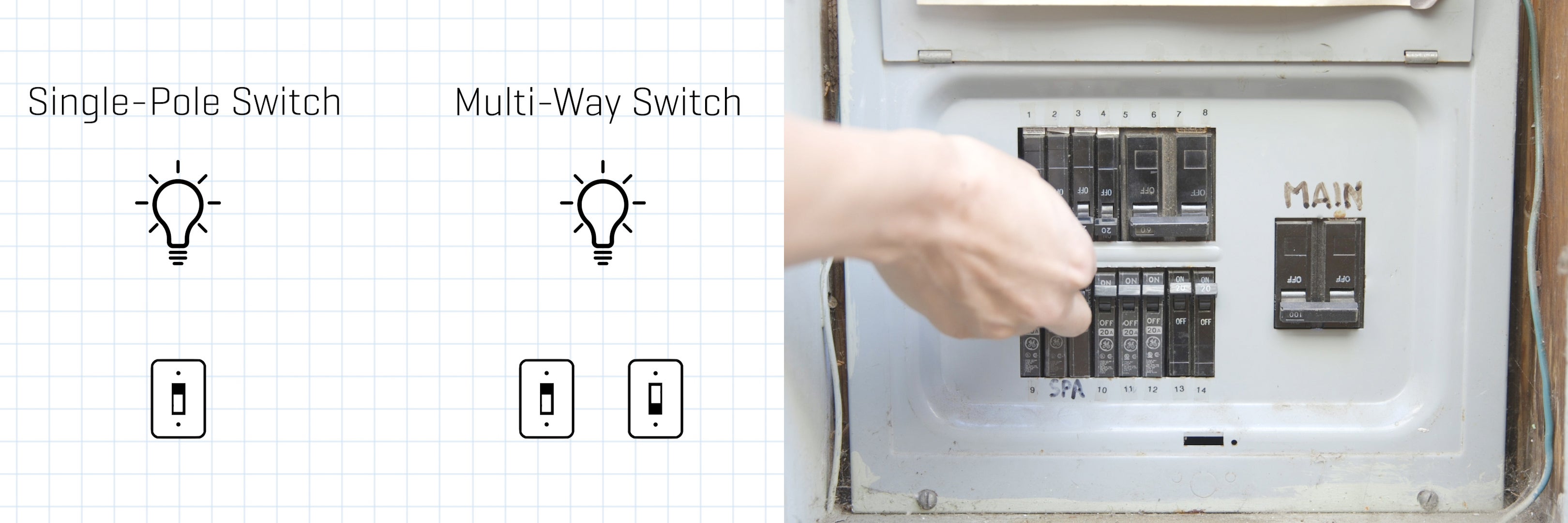

- #SMART SWITCH VS SMART BULB INSTALL#
- #SMART SWITCH VS SMART BULB MANUAL#
- #SMART SWITCH VS SMART BULB SOFTWARE#
Homeowners can program their system to switch lights off when people leave a room, or turn on when a person enters the house. Energy savings: Reduced energy consumption is a major benefit of smart lighting systems. Both smart switches and smart bulbs can incorporate If This Then That (IFTTT) functionality, meaning that certain events like weather changes or phone notifications can trigger lighting changes. For example, in a living room, a user can program their lights to be brighter for reading or dimmer for watching a movie. They can also program their system to create scene lighting, which they can change based on a certain activity. Greater control: Smart lighting allows a homeowner to control multiple fixtures from a single smart switch. A few possible features of a smart lighting system include: Homeowners should ask themselves what they’re looking to accomplish by automating part or all of their home’s lighting.

So which should you choose? Why Smart Lighting?Ī smart lighting implementation first takes a bit of planning. These can work separately or together, and each has unique advantages and disadvantages. Lutron has chosen to play with everyone and is certified for Apple HomeKit, Google Home, Amazon Alexa and has an API that has been incorporated into most hobbyist/DIY systems including Home Assistant, Hubitat, Smartings, and others.Homeowners who decide to take the smart lighting plunge are immediately confronted with two groups of products: smart bulbs and smart switches. Lutron is rock-solid, does not have the unreliability of Wi-Fi, and the lower frequency band used provides much greater range and reach than other wireless methods. I've tried them all and for both technical and business reasons have found Lutron to be far superior. The most popular include Insteon (dual mode - both line carrier and RF) and Lutron (433Mhz RF). There are pros and cons to all of these wireless protocols, but don't overlook the vendor specific (aka "proprietary") alternatives. Consumers may think Wi-Fi is the only choice, while savvy smarthome buyers know that Philips Hue uses Zigbee and other more hobbyist friendly brands use Z-Wave. I would suggest that you elaborate further on the type of communications used by smartswitches/smart dimmers.

SmartBulbs can be used, with some limitations, with smart switches, but cannot be used with smart dimmers (the PWM dimming control wreaks havoc with the microcomputer/microprocessor power supply inside all smart bulbs). "Smartswitches" is often used to refer to both actual switches and the more common dimmers. Whereas with smart lights, you always need to leave the companion switch flipped on. With a smart switch, we could use the wall-mounted toggle as we would with a standard switch. Not to mention times when we’d misplace a remote. There are also times when me or my family members don’t want to use our voice or smartphones to turn the lights on or raise their brightness. The issue with having an intelligent space is that when you have guests over, they could get tripped up with adjusting our devices.
#SMART SWITCH VS SMART BULB MANUAL#
Second, smart switches provide a manual control that smart light bulbs don’t, unless you purchase a separate smart light remote control. Smart light bulbs app and smart assistant platforms let you group bulbs however you want, but that won’t prevent isolated issues.
#SMART SWITCH VS SMART BULB SOFTWARE#
And if we use smart bulbs, we’d have to set up each of those bulbs individually, which welcomes headaches with software updates or glitches. We’re working with kitchen flood lights, the living room floodlights and the entryways spotlights. How come? First, our light fixtures need to be organized by group. And despite my love of smart lights, I think we’re going to take this route.
#SMART SWITCH VS SMART BULB INSTALL#
That said, we’re confident we can install some smart switches. In other words, a single smart switch can be more cost-effective than a set of high-end smart bulbs.Įlectrical work can be hazardous, so consult an electrician if you’re unfamiliar with your home wiring. Smart switches cost somewhere between $40 to $60 depending on the brand and features, and can be used with several basic LED bulbs that cost about $1 per piece, or less in bulk. The alternative is to use smart light switches, which aren’t as easy to install, but could save money if you have a lot of light sockets.


 0 kommentar(er)
0 kommentar(er)
